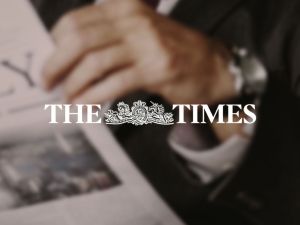This month’s market update comes as Covid begins to once again rear its head from a financial perspective. Will Omicron have a dramatic effect on markets or will the impact of the new variant be absorbed? Equally, what does the reappointment of Jerome Powell as Chairman of the Fed mean for the future of monetary policy? Our Investment Consultant Manager, Chris Rudden, discusses the key topics for December.
Covid and the markets
As 2021 draws to a close, markets have been going through one of the year’s more volatile periods. This comes at the end of a year in which portfolio volatility was low relative to our long-term targets.
The primary concern has been the latest wave of Covid-19 infections and the emergence of the Omicron variant. Markets have already reacted – in many cases abruptly – to the possibility that this new variant could be difficult to control. It’s still too early to call how impactful the new virus will be. There is a chance that vaccine policies may need a rethink if it proves difficult.
The reaction from the markets reminds us that growth is fragile. The global economic situation still looks positive. But, if Omicron does cause the disruption that some fear it might, we may see some more volatility in 2022.
Over the past two years, the global economy has demonstrated its ability to function even in the most exceptional of circumstances. Largely, this is thanks to swift policy action and a remarkable response from the healthcare sector in producing vaccines so quickly. In a real sense, the news of the last few weeks is a reminder that we still have some way to go.
Without being alarmist, these concerns will affect our thinking as we head into 2023. We still believe that equity has some room to grow and we haven’t reduced our positioning on it. However, we’re closely monitoring our exposure to ensure it’s solid enough to withstand any potential volatility.
The FED and Powell
The last month also saw the reappointment of Jerome Powell as head of the Federal Reserve. It’s not our job to give report cards to central bankers, but we would say that Powell and his team managed an unprecedented situation effectively.
Powell’s reelection was not without controversy. In particular, from the left wing of the Democratic party, which supported Lael Brainard for the position – a supporter of even more progressive monetary policy.
In a sense, Biden’s decision to opt for Powell was symbolic. It represented a commitment to the gradual normalisation of FED policy, as opposed to a new era of monetary experimentation.
Inflation now looks set to be ‘higher for longer’. Even the newly reappointed governor has stopped describing it as a ‘transitory phenomenon’. We’ve talked a lot about the impact of inflation on monetary policy and interest rates, but we haven’t fully analysed the impact a prolonged period of price rises would have on equity.
Equity investments can be an effective hedge against inflation. This is because publicly traded companies can increase prices and, in turn, revenues. This typically holds true until price growth reaches the point where central banks feel compelled to act, usually by tightening monetary policy.
Ultimately, inflation does not affect all companies equally. There are some that manage to take advantage of the difference between revenue inflation and cost inflation, but they can be difficult to spot. Financial metrics like gross margin or ROI can help. Another hypothesis is that large firms should do better than small firms. Bigger companies may be able to negotiate more aggressively with suppliers. They’re also usually more diverse and less susceptible to cost inflation.
In recent months, we’ve kept our equity exposure unchanged. This is in keeping with the idea that inflation might not be too much of a hurdle for equities, at least for now. We will, however, be keeping an eye on our equity positioning as the situation around inflation develops.





